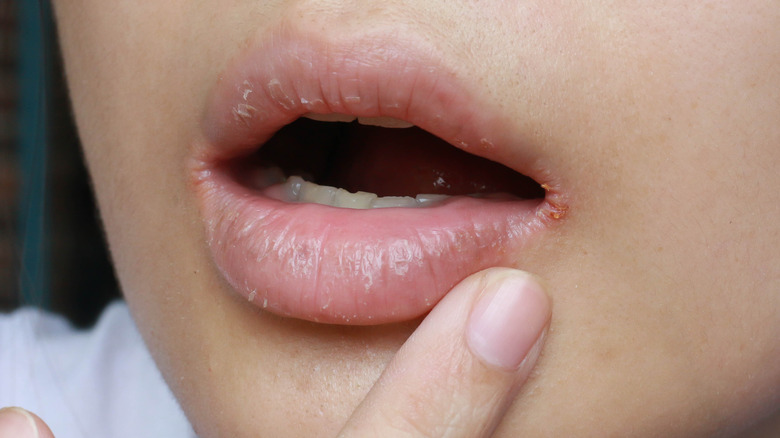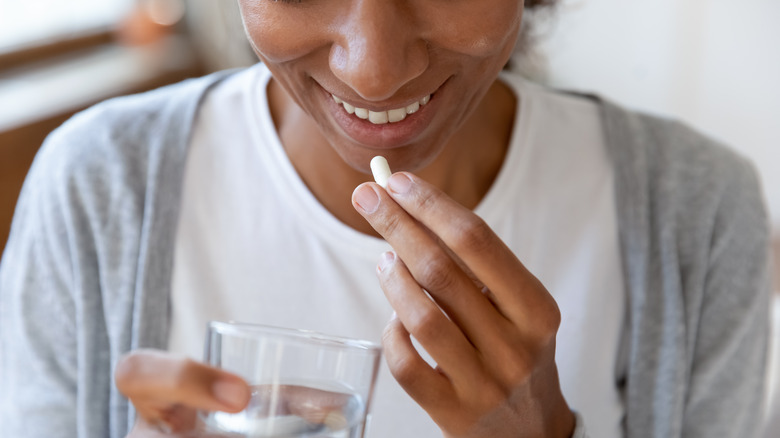If The Corners Of Your Mouth Crack, This Could Be Why
If you have a severe case of dried lips that includes cracks around the corners of your mouth, it might not be just because of cold or dry weather. This may, in fact, be the result of an inflammatory condition known as angular cheilitis, explains the Cleveland Clinic. You will likely notice open sores that are painful and won't go away with an application of lip balm.
Angular cheilitis isn't a serious condition, but it is uncomfortable and often requires treatment. It is caused by the build-up of saliva in the corners of the mouth, such as during the night when you're sleeping, which then leads to the skin drying out (via the Cleveland Clinic). If bacteria or fungi — which are naturally present in your saliva and on your skin — make their way into the cracked skin, this can cause an inflammatory or infectious reaction. The condition is also associated with a number of risk factors, including chronic health conditions, immune system disorders, smoking, skin wrinkles, and age (the very young and the elderly are most susceptible).
You may be relieved to know that angular cheilitis is not contagious or related to any sort of underlying viral infection, such as herpes, according to Healthline. If you notice crusting, itching, pain, ulceration, and redness in the corners of your mouth that don't go away with over-the-counter lip treatments, here's what you can do.
What to do if you have angular cheilitis
The first step you should take upon suspecting the presence of angular cheilitis is to contact your doctor, explains Healthline. Since the condition can have more than one underlying cause, a medical professional is necessary to determine the right course of treatment. If your doctor identifies a fungal infection, they will then prescribe an anti-fungal topical medication to treat the angular cheilitis. WebMD adds that a bacterial cause will require specific anti-bacterial medication, such as mupirocin or fusidic acid.
In severe cases where other treatments have failed, a doctor may resort to an immune-suppressing medication to treat the inflammation (per Healthline). In addition to medicated treatments, it's also a good idea to regularly apply petroleum jelly or other lip balms to prevent the skin from drying out further, which in turn exacerbates the problem.
Once your angular cheilitis has passed, it's important to take steps to prevent a reoccurrence. For example, one 2018 study published in the Cleveland Clinic Journal of Medicine found a link between angular cheilitis and an iron deficiency. This can potentially weaken the immune system, making it more likely for the condition to return. You'll also want to ensure you stay hydrated and prevent dry mouth as much as possible to keep angular cheilitis from developing, explains Self. Chemotherapy can also dry out the skin and make you more susceptible to the condition. Talk to your doctor to learn more ways to prevent dry skin.


